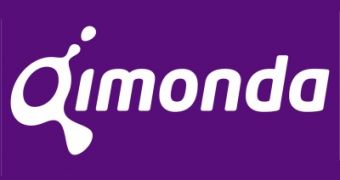It looks like the global low economy has made another victim in the IT industry, as Germany's chipmaker Qimonda has recently filed an application with the local court in Munich to open the necessary proceedings for insolvency. The DRAM maker claims that the insolvency petition is a direct result of the massive drop in prices registered in the DRAM industry, combined with a dramatic decrease in access to financing on the capital markets. With the insolvency petition, Qimonda, the world's fifth-largest DRAM vendor, is the first vendor in its industry to file for insolvency. This is expected to create a free market share, which will be split by the company's competitors, including Samsung, Hynix Semiconductor and Elpida Memory.
“German insolvency law offers the opportunity to accelerate the restructuring process that has already been started in order to reposition the company back onto a solid base. Qimonda possesses established products and, with its Buried Wordline technology, is currently bringing a promising future technology to the market,” said Kin Wah Loh, president and chief executive officer of Qimonda AG.
The German chip maker has already entered a global restructuring and cost reduction program, started back in October as part of a plan to reposition the company. As part of the program, Qimonda will focus on core competencies, such as the Buried Worldline technology and its strong portfolio of infrastructure and graphics products.
Following the announcement of Qimonda's insolvency, Elpida's shares were up 4 percent on Tuesday, after having jumped to 6.4 percent on Monday.
At this stage, Qimonda's future is still uncertain and there's no way of telling if the DRAM maker will be acquired by other companies, or if it plans to exit the DRAM business altogether, a business that is facing its worst ever downturn. Qimonda's situation will be analyzed by the temporary insolvency administrator, who will assess the company's position.
“It is still too early to make a well-founded assessment. What is already clear is that we are dealing with a highly complex situation and an extremely capital-intensive business. Therefore, contributions from financially strong investors are required to reach a sustainable solution,” said preliminary insolvency administrator Dr. Michael Jaffé.

 14 DAY TRIAL //
14 DAY TRIAL //